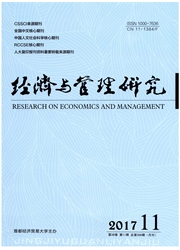

 中文摘要:
中文摘要:
随着绿色浪潮的兴起和发展,很多企业采取绿色产品战略,但这些企业有的真正实施绿色产品策略,有的却采取“漂绿”行为策略。鉴于绿色产品宣传需要成本,有真实绿色行为的企业可能发出绿色产品的信号,也可能发出传统产品信号;由于绿色产品溢价效应,无绿色行为的企业既可以发出绿色产品的虚假信号,也可以如实发出传统产品信号。消费者通过观察企业发出的信号决定其采取购买或不购买的策略。通过构建信号博弈模型,能够研究企业与消费者的相关博弈行为,提出消除漂绿行为的建议,从而促进绿色产品市场健康发展。
 英文摘要:
英文摘要:
With the rise and development of the green wave, many enterprises take the green product strategy. Some enterprises are really carrying out green product strategy, but others take greenwashing behavior strategies instead of real green behavior strategy. As the green product promotion needs costs, enterprises of real green behavior strategies can send signals of green products, or just make traditional product signals. Because of the green product premium effect, enterprises exerting no green behavior strategies can emit false green product signals or truthfully make traditional product signals. Consumers decide to take "buy or not to buy" strategy according to the observed signals. By constructing a signal game model, this paper studies the related game between enterprises and consumers. Finally, this paper proposes elimination of greenwashing behavior, so as to promote the healthy development of green product market.
 同期刊论文项目
同期刊论文项目
 同项目期刊论文
同项目期刊论文
 期刊信息
期刊信息
